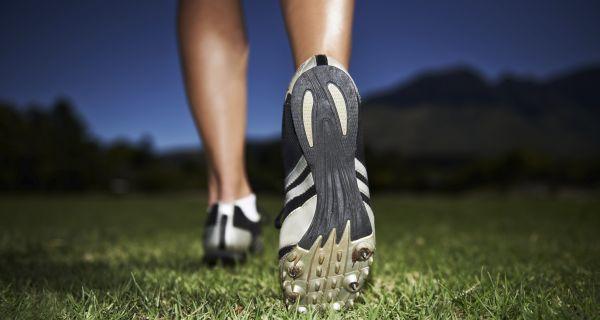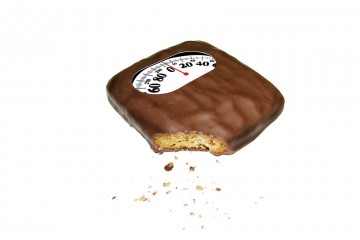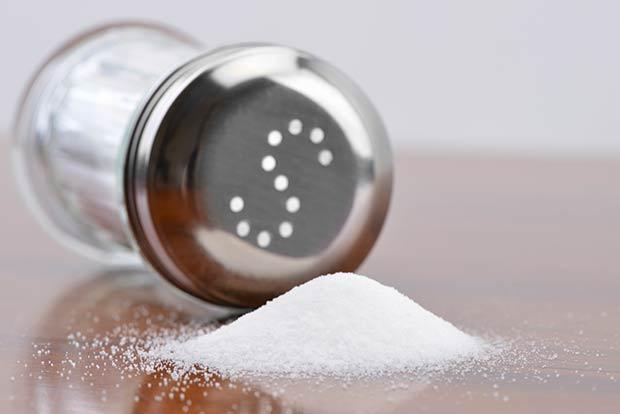How to Lose Weight When You Are 60 Years Old
Losing weight at any age is difficult, but as your body changes with age, it can become increasingly hard.[1] However, maintaining a healthy weight is important for your overall well being at any age and especially as you get older.[2] If you’re carrying a few extra pounds and want to lose them even with challenges such as a slowed metabolism, you can implement a sensible diet and exercise plan to help yourself get to your target weight.
Steps
Method 1 Eating a Well Balanced Diet
-
1
Eat healthy, regular meals. Eating healthy, balanced, and regular meals can help you lose any weight and burn fat. Foods that have moderate fat, complex carbohydrates, and are high in nutrients, for example, are best for your general health.
- Stick to a diet of about 1,200-1,500 nutrient-rich calories a day, depending on how active you are.[3]
- You will get proper nutrition if you incorporate foods from the five food groups every day. The five food groups are: fruits, vegetables, grains, proteins, and dairy.[4]
- You need 1-1.5 cups of fruit per day. You can get this from eating whole fruits such as raspberries, blueberries, or strawberries, or from drinking 100% fruit juice.[5] Make sure to vary the fruits you choose so that you get a range of nutrients and don’t process them in any way. For example, eating a cup of pure berries is much cleaner than eating berries on top of a cake.
- You need 2.5-3 cups of vegetables per day. You can get this from eating whole vegetables such as broccoli, carrots, or peppers, or from drinking 100% vegetable juice.[6] Make sure to vary the vegetables you choose so that you get a range of nutrients.
- Fruits and vegetables are an excellent source of fiber, which you need more of over 60. Not only will fiber keep you regular, but it can also help you ward off heart disease, strokes, diabetes, and improve your skin. Fiber will also help you to lose weight.[7]
- You need between 5-8 ounces of grains per day, of which ½ should be whole grains. You can get grains and whole grains from foods such as brown rice, whole wheat pasta or bread, oatmeal, or cereal.[8] Grains will provide you with vital Vitamin B, which can help aid slowed digestion.[9]
- You need 5-6.5 ounces of protein per day.[10] You can get protein from lean meats including beef, pork, or poultry; cooked beans; eggs; peanut butter; or nuts and seeds.[11] These will also help you to build and maintain muscle.[12]
- You need 2-3 cups, or 12 oz., of dairy per day.[13] You can get dairy from cheese, yogurt, milk, soymilk, or even ice cream.[14] These will help build and maintain strong bones as muscles, which get weaker as we age.[15]
- Avoid excessive amounts of sodium in your diet, which is prevalent in mass-processed foods. Your sense of taste decreases as you age, and you may want to salt your food. Try using alternative seasonings such as garlic or herbs to help you avoid excess sodium and gaining water weight.[16]
-
2
Avoid unhealthy foods. If you’re trying to lose weight, it’s a good idea to avoid unhealthy or junk foods, many of which are loaded with fat and calories.[17] Potato chips, nachos, pizza, burgers, cake, and ice cream will not help you lose weight.
- Stay away from starchy, refined carbs such as bread, crackers, pasta, rice, cereal, and baked goods. Eliminating these foods can also help you lose weight overall.[18] These can cause spikes in your blood sugar and may exacerbate or lead to diabetes.[19]
- Look out for hidden sugar in your food choices. As your ability to taste decreases with age, it may be difficult to detect a lot of sugar in foods, which can cause you to gain weight. Make sure to read packaging and look for terms that indicate sugar such as corn syrup, sucrose, dextrose, or maltose.[20]
-
3
Make changes to your diet gradually. While you may be excited to completely overhaul what you’re eating, it’s important to gradually make changes to your overall diet. This will help you stick to eating healthy.
- You can slowly replace processed foods. For example, if you eat white rice with every meal, switch to brown rice and then gradually add more vegetables and less rice.
- Remember to allow yourself to cheat occasionally so that you stay on track.[21]
-
4
Plan meals as often as possible. Planning your meals in advance will help you to avoid regressing towards unclean habits. It will also help ensure that you’re getting plenty of nutrients and may even save you money.[22]
- For example, plan your breakfasts to help start off your day on the right foot. If you don’t have lunch meetings, packing a clean and unprocessed lunch can help you avoid buying unhealthy fast foods. If you do have a lunch meeting, order the least processed and most natural food on the menu, such as salads.
-
5
Allow yourself cheat days. No person is perfect and sometimes you crave unhealthy foods. Allow yourself occasional cheat days to enjoy junk food or foods you wouldn’t normally eat on your plan.[23]
- There is increasing evidence that allowing yourself to cheat occasionally and consciously will help you maintain your diet in the long run because you’re not denying yourself anything.[24]
- You may even find you don’t unclean foods as often when you’re eating a clean diet.
- Never berate yourself or let mistakes or cheat days derail your overall healthy habits. Setbacks are normal.[25]
-
6
Eat healthy at restaurants. Eating out can help keep you social and stimulate your mind after 60.[26] But it can also cause a major setback for many diets because of processed, high fat and calorie dishes. Consciously avoiding certain foods and making good choices at restaurants when your with friends can help you reinforce your good eating habits, continue to lose weight, and stay mentally acute.[27]
- Avoid unclean pitfalls like breadbaskets, fried foods, or dishes in heavy sauces such as fettucine alfredo.[28]
- Salads or steamed vegetables and steaks are good choices of healthy and minimally processed foods.
- Avoid buffets, which are often filled with unhealthy and processed food choices and can encourage you to overeat.[29]
- Have whole fruits for dessert, which are healthy and clean.[30]
Method 2 Getting Regular Exercise
-
1
Understand the benefits of regular exercise. Exercise can help anyone be and feel healthy. But it can also help you shed excess weight. Understanding the benefits of exercise can help get fit and lose weight..[31]
- Exercise can prevent excess weight gain.[32]
- Exercise can minimize age related problems such as muscle and bone loss, stress, or even sleep issues.[33]
- Exercise can increase your energy and help you to sleep.[34]
-
2
Warm up and cool down as a part of exercise sessions. Whenever you have an exercise session, make sure you warm up before them and spend some time cooling down once you’re finished. This will help prepare your body to exercise as well as stabilize your temperature and blood pressure.[35]
- Warm up with a low-impact and light activity, such as walking, for 5-10 minutes.[36]
- Cool down with a low-impact activity such as light jogging or walking for 5-10 minutes.[37]
- Being and staying properly hydrated for exercise is important. Make sure to have at least 64 ounces of liquid a day to stay hydrated and add 8 ounces of water for every hour of activity.[38]
-
3
Participate in cardiovascular exercise. Doing low-impact, moderate intensity cardiovascular exercise can help you maintain your fitness and may also help you lose weight. Discuss your plan to do cardio training with your doctor and certified fitness professional before you start.
- People over 60 can do at least 30 minutes of moderate exercise all or most days of the week.[39] If you can’t do an activity for 30 minutes, split it up into two 15 minute sessions.[40]
- If you are very active, you may be able to keep up with these workouts with your doctor’s approval and if you feel comfortable.[41]
- If you are just beginning or need to do a lower impact activity, walking and swimming are excellent options.[42]
- You can do any type of cardio training to help you lose weight. Beyond walking and swimming, consider running, rowing, biking, or using an elliptical machine.[43]
-
4
Perform strength-training exercises. In addition to cardiovascular exercise, strength training can help you lose weight.[44] It may also help ward off age-related diseases such as osteoporosis and prevent you from injuring yourself because bearing weight builds bone and muscle.[45]
- Before you begin any strength training program, consult with your doctor and maybe even with a certified trainer, who will create the best plan for your abilities and needs.
- Focus on exercises that strengthen your whole body and are specific for your needs as you age. For example, leg strengthening exercises will help support the weight of your body.[46]
- If weights are too heavy, resistance bands can provide a similar muscle building effect for people over 60.[47]
-
5
Practice regular yoga or Pilates. Try a yoga or Pilates class either in a studio or online. These lower-impact activities can help strengthen and stretch your muscles while helping you to relax.[48]
- There are a wide variety of video-based yoga and Pilates courses available. You may consider purchasing DVDs, which can offer basic guided sessions for you to follow. You can also search online for videos or courses that guide you through different levels of yoga and Pilates sessions.[49]
-
6
Listen to your body. If you decide to exercise to lose weight, it’s important to listen to your body during any activity. This can help you identify if you’re tired, need to hydrate, or are experiencing the signs of a more serious problem.
- Permit yourself to rest when you want. If you feel tired or don’t want to exercise one day, allow yourself to rest. Remember that rest is an integral part of staying healthy and losing weight.[50] You may find that you don’t have as much energy as you get older.[51]
- Stop exercising if you experience dizziness, headache, worsening shortness of breath, chest pain, heart palpitations or uneven and rapid heartbeat.[52]
Method 3 Consulting Health and Fitness Professionals
-
1
Consult your doctor about your fitness regimen and plan. If you want to lose some weight at or after the age of 60, first speak with your doctor about whether or not it’s safe to continue your activities or add to them. There may be some circumstances where it may be unsafe for you to do certain activities.[53]
- Exercise is generally good for you. Your doctor might suggest you not exercise if you have heart and lung problems or high blood pressure.[54]
- Talk to your doctor about the types of exercise you want to do to make sure they’re safe. Your doctor may suggest meeting with a fitness professional to help you find the best and safest exercises for you.
- Loneliness and depression can have an affect on your appetite and diet. If you are suffering from symptoms of either, speak to your doctor about how best to treat both conditions and lose weight.[55]
- Certain medications may alter your sense of taste, making you more likely to consume more sugar or salt, which can make you gain weight.[56] Talk to your doctor if you suspect your medication is causing you to gain weight.
-
2
Consult a registered dietician. Even if you don’t have special dietary needs, you will need to adjust your diet to lose weight and stay healthy because of slowed digestion and metabolism that comes with age.[57] Consult a registered dietician to discuss your specific dietary needs and how you can best get all of the vitamins and nutrients necessary to maintain your health and fitness.[58]
- Your metabolism slows every year after the age of 40.[59] Because of this, you may gain weight if you continue to eat the same amount.[60]
- Your digestion also slows down as you age and may make it difficult for you to process vitamins, minerals, and other nutrients such as folic acid.[61]
- If you are retired, you may find it difficult to eat healthy on a decreased budget. A dietician can help you make sensible and healthy choices on the cheap.[62]
- Your doctor or local hospital can suggest a registered dietician to help you meet your dietary needs and fitness goals.[63]
-
3
Consult a certified fitness professional. If you are exercise regularly and want to continue this activity to lose weight, consult a certified fitness professional once you have your doctor’s stamp of approval. She may be able to help you tailor an exercise regimen to help you drop excess pounds.
- Falls are a common reason for injury after 60.[64] Working out will make your bones and muscles stronger, and help protect you from falls and from muscle tears or bone breaks.[65]
- Even moderate exercise can help you prevent and control chronic health issues that are prevalent in aging persons, including diabetes.[66]
- Studies have shown that exercise can also help maintain or improve brain function, which decreased as we age.[67]
- A certified fitness professional can help you get fit and lose weight even if you haven’t been working out. Getting or increasing fitness as you age can help you stay healthy and ward off aging and age-related diseases such as osteoporosis or diabetes.[68]
- A certified fitness professional may tell you it’s safe to continue whatever exercises you do as long as you feel well and comfortable and have the ok from your doctor.[69]
-
Conjugated linoleic acid and loss
I was heartened by this story that has been running for a couple
-
Weight Loss Tip #87- Exercise 45 minutes daily
-
Should You Try Carb Cycling For Weight Loss?
Here's the deal with carbs: You need them to power through muscle-
-
Foods to Include in a Simple Diet Plan for Weight Loss
If you want to lose with a simple diet plan, you need to exerci
-
6 Rules Every Dieter Should Live By
I've written about fitness and nutrition for 23 years and counting
-
5 Tips To Losing Tummy Fat After Pregnancy
Most women are happy after their marriage because they can see the re
- DON'T MISS
- Weight Loss Help: How Do Programs Really Benefit You?
- Rapid Weight Loss: 3 Reasons You Should Be Concerned
- Eliminating Stubborn Belly Fat - Get Visible Abs With These Lifestyle Secrets
- Weight loss tips for men
- Carnie Wilson and her Comeback
- Weight Loss Success: A Nutritionists 10 Best Tips
- Weight Loss Tip #99 — Eat more spices
- Weight Loss Tip #98 — Start your day with a heavy breakfast
- 12 Nutritionists Share The Top Tips They Give To Clients Trying To Lose Weight
- 8 Ways to Lose 10 Pounds Without Exercise




